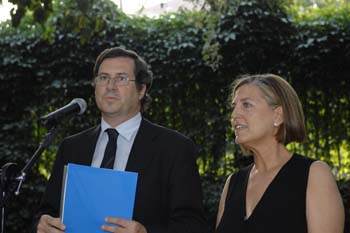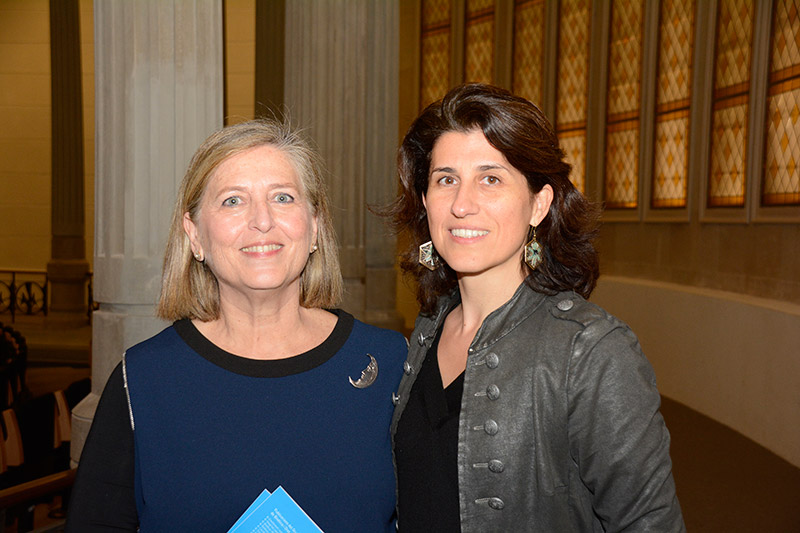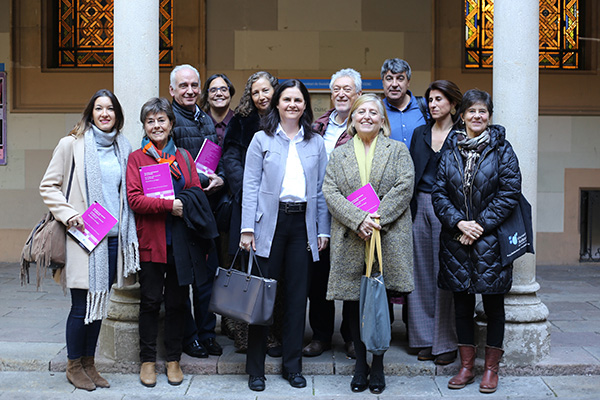The Bioethics and Law Obs.
Master in Bioethics and Law
Master in Food Ethics and Law
UNESCO Chair in Bioethics
Contact
- Bioethics and Law Observatory
- UNESCO Chair in Bioethics
- University of Barcelona
- Faculty of Law
- Ave. Diagonal, 684
- 08034 Barcelona
- (+34) 93 403 45 46
- obd.ub@ub.edu
- Master in Bioethics and Law
- (+34) 93 403 45 46
- master.bd@ub.edu
History
 The Observatory on Bioethics and Law (OBD) is a University of Barcelona research, teaching, and transfer centre that carries out its activities in an interdisciplinary way and from a secular point of view. Its members understand that bioethics is a field of knowledge that requires pluralistic approaches and solid scientific support in order to analyze the ethical, legal and social consequences of biotechnology and biomedicine. The objective is to provide arguments and proposals that promote autonomy and responsibility, so that decisions in bioethics result in the construction of a more transparent, just and democratic society.
The Observatory on Bioethics and Law (OBD) is a University of Barcelona research, teaching, and transfer centre that carries out its activities in an interdisciplinary way and from a secular point of view. Its members understand that bioethics is a field of knowledge that requires pluralistic approaches and solid scientific support in order to analyze the ethical, legal and social consequences of biotechnology and biomedicine. The objective is to provide arguments and proposals that promote autonomy and responsibility, so that decisions in bioethics result in the construction of a more transparent, just and democratic society.
The OBD was founded by Dr. Maria Casado in the 1995/96 academic year with the support of the then UB Vice-Rector for Research, Dr. Marius Rubiralta. The team that promoted its creation was made up of Dr. Roser González Duarte, professor of genetics at the UB, Dr. Encarna Roca, professor of civil law at the UB, and Dr. Josep Egozcue, professor of molecular biology at the UAB.
The OBD management team was joined by Dr. Ramon Valls, professor of philosophy at the UB, Dr. Albert Royes, professor of philosophy and medical ethics, Dr. Mª Jesús Buxó, professor of cultural anthropology at the UB, and Dr. Ana Sánchez Urrutia, as clinicians, Dr. Lidia Buisán, Dr. Lluís Cabré and Dr. Joaquín Martínez Montauti. Later, Drs. Josep Santaló, professor of cellular biology at the UAB, Gemma Marfany of genetics at the UB, and Mirentxu Corcoy, professor of criminal law at the UB, joined the group. At present, young professors of recognized standing have also joined as members of the Observatory, guaranteeing renewed continuity, such as Dr. Itziar de Lecuona, professor of bioethics at the Faculty of Medicine (who was appointed deputy director of the OBD in 2016), Dr. Manuel J. López Baroni, professor at the UPO, Dr. Mª Jose Plana, professor at the University of Wageningen, and Dr. Fabiola Leyton, all of whom are OBD researchers.
 The Observatory was created in 1995, around the Master's Degree in Bioethics and Law, with the intention of offering a secular approach to our discipline. The word Law in the title refers not only to the legal system, but also to Human Rights as a minimum ethical ground from a secularist perspective.
The Observatory was created in 1995, around the Master's Degree in Bioethics and Law, with the intention of offering a secular approach to our discipline. The word Law in the title refers not only to the legal system, but also to Human Rights as a minimum ethical ground from a secularist perspective.
The Master's Degree in Bioethics and Law began in 1994, and since then it has been offered uninterruptedly for almost twenty-five years, training numerous jurists, health professionals, philosophers, academics, members of ethics committees, politicians, professional journalists and, in general, people interested in our discipline, from both sides of the Atlantic. This degree provides a global, flexible and integrative vision of bioethics, framed in the respect for internationally recognized Human Rights, and in achieving an interdisciplinary training that allows rational decision making in the face of bioethical problems and issues. The more than five hundred students who have passed through our classrooms constitute learning communities, both in Latin America and in Europe, which allows for constant and lasting mutual enrichment through the Association of Bioethics and Law, created in 2001. In this sense, the networks created by the OBD have allowed professionals from different countries to come together, and the bonds generated have made it possible to enrich the research of the various groups, as well as to provide feedback on the approaches and points of view in the social debate.
In 1996, the UB's Bioethics Commission (CBUB) was created in response to the obvious need to evaluate research projects presented in the various national and international calls for proposals. Given the reiteration of the problem, a network was created around the CBUB between various public universities which, in 2002, were formally constituted as the "Network of Ethics Committees of Spanish Universities and Public Research Bodies". Both the Commission and the Network were created on the initiative of Dr. Casado, who coordinated them until 2002, when Dr. Royes took charge of the CBUB until today and of the network until 2017, when it was managed by the CSIC and the University of Alicante.
 Since 2000, the research of the Observatory of Bioethics and Law has been supported by the Consolidated Research Group "Bioética, Dret i Societat" of the Generalitat de Catalunya, whose work and recognition has been renewed until today. Likewise, the creation of a doctoral line in bioethics at the UB in 2011 has been another milestone in the history of the OBD and of bioethics itself in our country. The defense of innovative theses by our students, the publication of numerous books and the creation of the Bioethics Collection -accredited in 2018 by ANECA as being of recognized quality-, the multitude of articles published by our researchers in the most prestigious journals of our discipline, as well as the numerous research projects achieved in competitive competition, both in the European Union and at a state and regional level, make up a conglomerate of networks, publications and means of influence in society that try to shape the reality in which we live from a social, secularist and human rights-friendly perspective. The Bioethics Collection, the Doctorate Line and the Research Group were created at the request of Dr. Casado, who coordinates them to this day.
Since 2000, the research of the Observatory of Bioethics and Law has been supported by the Consolidated Research Group "Bioética, Dret i Societat" of the Generalitat de Catalunya, whose work and recognition has been renewed until today. Likewise, the creation of a doctoral line in bioethics at the UB in 2011 has been another milestone in the history of the OBD and of bioethics itself in our country. The defense of innovative theses by our students, the publication of numerous books and the creation of the Bioethics Collection -accredited in 2018 by ANECA as being of recognized quality-, the multitude of articles published by our researchers in the most prestigious journals of our discipline, as well as the numerous research projects achieved in competitive competition, both in the European Union and at a state and regional level, make up a conglomerate of networks, publications and means of influence in society that try to shape the reality in which we live from a social, secularist and human rights-friendly perspective. The Bioethics Collection, the Doctorate Line and the Research Group were created at the request of Dr. Casado, who coordinates them to this day.
In 2004, the most emblematic publication of OBD was initiated: The Journal of Bioethics and Law, with open access and digital format. Its current version, where the studies and analyses of numerous researchers from both sides of the pond have converged, is the result of the incorporation in 2016 of the journal Perspectivas Bioéticas (FLACSO, Argentina) which, in its paper version, was already the oldest bioethics publication in Spanish.
Throughout these twenty-five years, bioethical issues have been increasing in extension and complexity. In line with this thematic extension, the Observatory's lines of research and action have been diversifying. Thus, at present, Artificial Intelligence, health big data, nanotechnology, synthetic biology and the so-called disruptive technologies have been fully incorporated into the global bioethical debate. The creation of a second master's degree within the Observatory, the Master's Degree in Food, Ethics and Law, in 2017, responds to this growing complexity of contemporary bioethics.
 On the other hand, the relevance of the Observatory of Bioethics and Law can be seen both in its symbolic and practical aspects. On the one hand, its director, María Casado, was awarded the Narcís Monturiol Prize in 2006, the most important prize in Catalonia, for "her pioneering research in bioethics, framed in respect for internationally recognised human rights and not in bodies of belief, which is based on a multidisciplinary and secular approach and is generally accepted today", and in 2007, the UNESCO Chair in Bioethics, one of nine in the world and the only one in Spain in this specialty; and on the other hand, the documents and reports produced by this Observatory have been reflected in Spanish legislation, to the extent that many of the regulations approved in recent years mimic its proposals. Throughout all these years, the commitment to UNESCO values has been evident in various areas, among which we would like to highlight the "International Days on the UNESCO Universal Declaration on Bioethics and Human Rights", which are held annually and now have 14 editions.
On the other hand, the relevance of the Observatory of Bioethics and Law can be seen both in its symbolic and practical aspects. On the one hand, its director, María Casado, was awarded the Narcís Monturiol Prize in 2006, the most important prize in Catalonia, for "her pioneering research in bioethics, framed in respect for internationally recognised human rights and not in bodies of belief, which is based on a multidisciplinary and secular approach and is generally accepted today", and in 2007, the UNESCO Chair in Bioethics, one of nine in the world and the only one in Spain in this specialty; and on the other hand, the documents and reports produced by this Observatory have been reflected in Spanish legislation, to the extent that many of the regulations approved in recent years mimic its proposals. Throughout all these years, the commitment to UNESCO values has been evident in various areas, among which we would like to highlight the "International Days on the UNESCO Universal Declaration on Bioethics and Human Rights", which are held annually and now have 14 editions.
Finally, OBD members participate in numerous national and international Bioethics Expert Committees and carry out activities in the field now called RRI, in the area of promoting public participation and transfer.
The 20th anniversary of the creation of the OBD was celebrated in 2015 and the 25th anniversary has been held in the academic year 2020-21.




